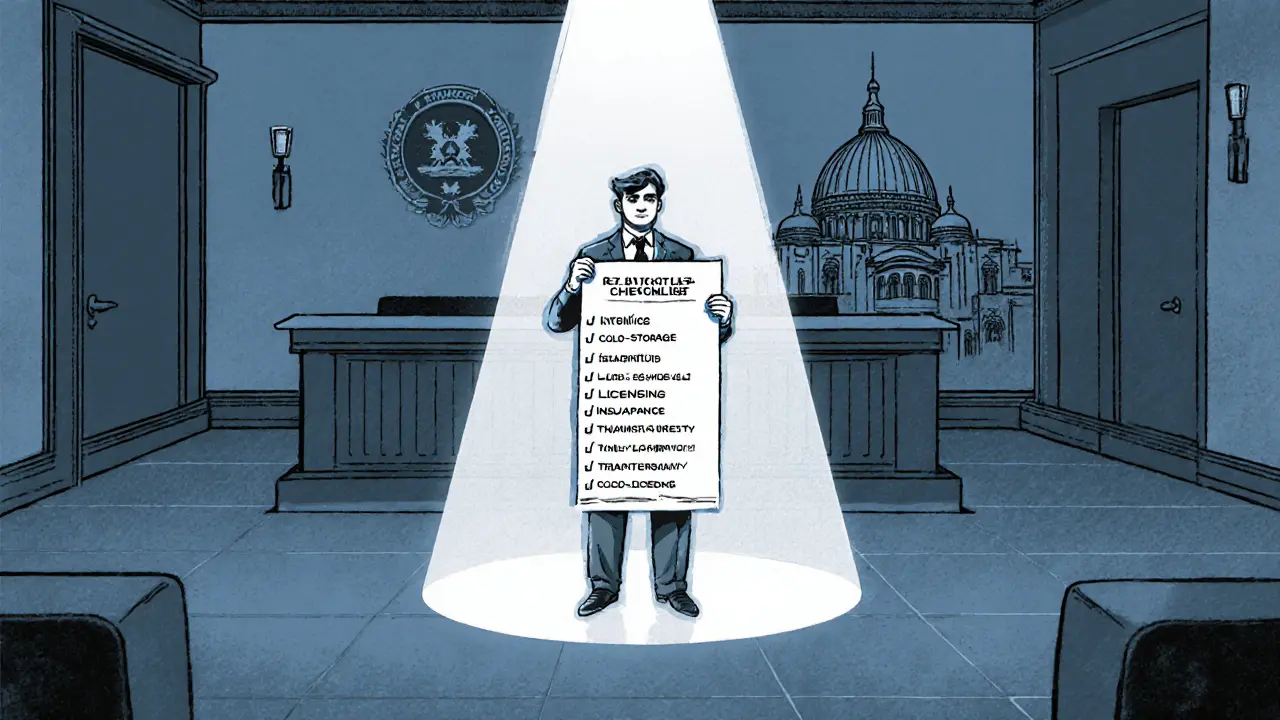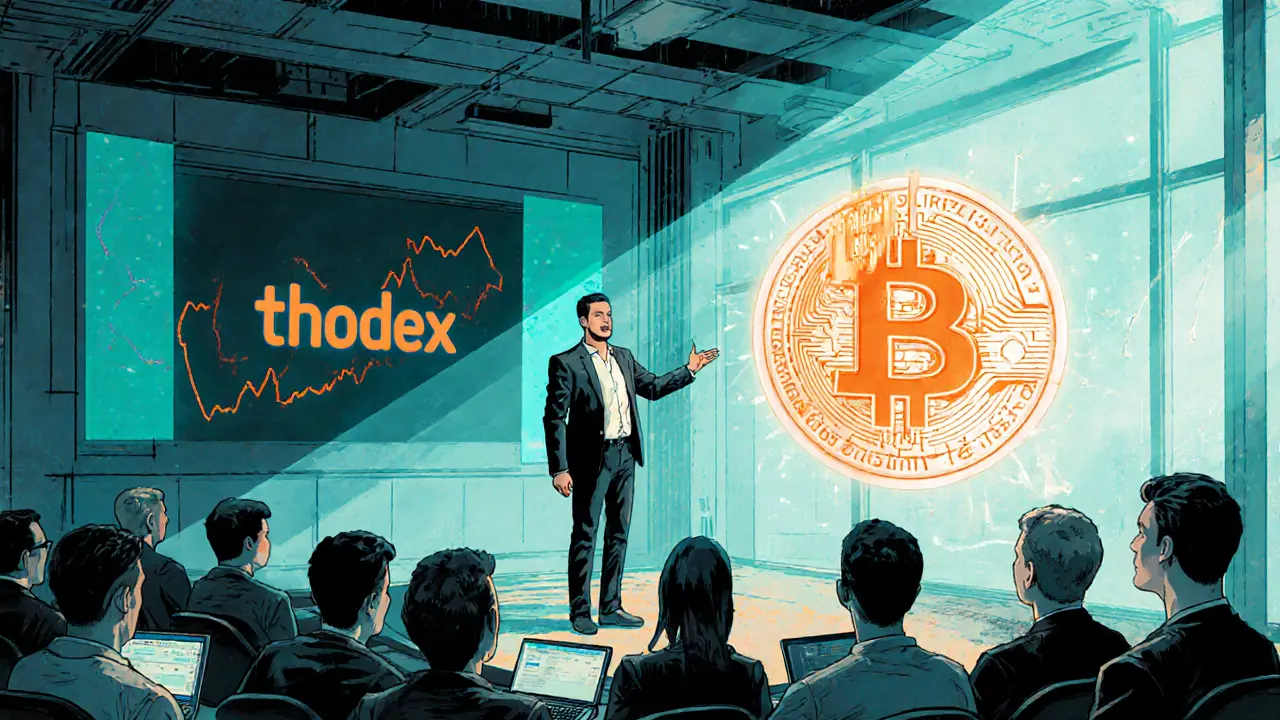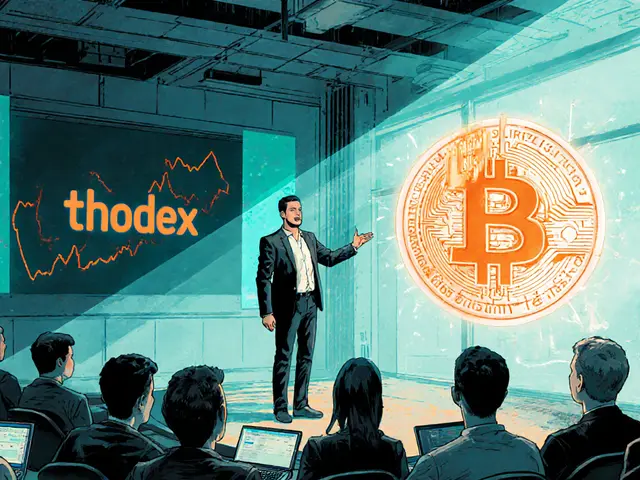Crypto Exchange Risk Assessment Tool
Key Red Flags to Watch For:
- ✓ Cold storage of user funds
- ✓ KYC/AML compliance
- ✓ Insurance coverage
- ✓ Regulatory licensing
- ✓ Responsive customer support
This Thodex review breaks down what happened to the once‑leading Turkish crypto exchange, how the founder vanished with billions, and what the fallout means for traders today.
What Was Thodex?
Thodex was a Turkey‑based cryptocurrency exchange launched in 2017 by entrepreneur Faruk Fatih Özer. The platform marketed itself as the country’s gateway to digital assets, offering Turkish lira (TRY) deposits, low trading fees, and frequent promotional campaigns. By early 2021, the exchange claimed over 400,000 registered users and handled an estimated $500million in daily trading volume, capturing around 60% of Turkey’s domestic crypto market.
How the Scam Unfolded
On April20,2021, Thodex announced a "temporary pause" for "outside investment negotiations." Within hours the website went offline, and users found their accounts locked. The next day, Turkish media reported that founder Faruk Fatih Özer had fled the country, allegedly absconding with roughly $2billion in user funds. Binance Square’s April2021 analysis labeled the event "Turkey’s $2Billion Exit Scam," noting that the sudden disappearance left hundreds of thousands of investors powerless.
Technical and Security Shortcomings
Thodex’s architecture resembled many web‑based exchanges of its era: a standard browser interface, no specialized hardware, and required only an internet connection. However, independent reviews (TechForing, Oct2023) highlighted critical failures:
- Absence of cold‑storage solutions - the majority of user assets were kept in hot wallets, making them vulnerable to theft.
- Lack of transparent fee structures - withdrawal limits were hidden and changed without notice.
- No mandatory KYC/AML procedures - the platform operated with minimal regulatory oversight, contravening emerging Turkish crypto laws.
- Poor customer support - during the collapse, users received no response for over 72hours, compounding panic.
These gaps violated the seven‑point framework for legitimate exchanges set by TechForing, which includes custody segregation, insurance, and regulatory compliance.

Thodex vs. Legitimate Exchanges
Below is a snapshot comparison between Thodex and two globally recognized platforms, Binance and Coinbase. The table focuses on core security and compliance features that mattered to everyday traders.
| Feature | Thodex | Binance | Coinbase |
|---|---|---|---|
| Cold‑storage of user funds | No | Yes (95% of assets) | Yes (98% of assets) |
| KYC/AML compliance | Minimal | Robust (global standards) | Robust (US regulations) |
| Insurance coverage | None | SAFU fund (up to $10M) | Bank‑insured custodial accounts |
| Regulatory licensing | None in Turkey | Multiple licenses worldwide | Licensed in over 30 jurisdictions |
| Customer support availability | Unresponsive during crisis | 24/7 live chat, tickets | Phone, chat, email |
Impact on Turkey’s Crypto Landscape
The Thodex collapse acted as a catalyst for stricter regulation. In March2022, Turkey introduced the "Regulation on the Provision of Services with Crypto Assets," mandating thorough KYC, AML, and prohibiting crypto as a payment method. The Capital Markets Board reported a 40% drop in unregistered platforms after the law took effect, a direct response to the public outrage sparked by the $2billion loss.
Retail investors, previously attracted by Thodex’s low fees and TRY‑based trading, migrated en masse to international exchanges such as Binance, Bybit, and Kraken, which offered transparent custody and regulatory compliance. Traders also became more cautious, demanding proof of cold‑storage, insurance, and clear withdrawal policies before signing up.
Red Flags to Watch for in Any Exchange
Thodex’s story provides a checklist for spotting dubious platforms:
- Check for cold‑storage claims - reputable exchanges store the majority of user assets offline.
- Verify regulatory licensing - look for registration with financial authorities in the exchange’s operating jurisdiction.
- Demand transparent fee structures - hidden withdrawal caps or sudden fee hikes are warning signs.
- Assess customer support - genuine platforms maintain 24/7 channels and respond within hours.
- Look for insurance or SAFU‑type funds - these indicate a commitment to safeguarding user capital.
Applying these criteria can help traders avoid becoming victims of similar exit scams.

Legal Proceedings and Recovery Outlook
International authorities have kept the hunt alive. Interpol issued a red notice for Faruk Fatih Özer, and Turkish police reportedly captured him in Albania in August2022. The Turkish Financial Crimes Investigation Board (MASAK) continues to investigate, but estimated recovery rates remain below 5% of the stolen $2billion.
Legal experts quoted by CoinDesk predict a multi‑year litigation process, potentially spanning 5‑7years before any restitution reaches victims. Most affected users have turned to community‑run fund‑tracing services like investorwarnings.com, but success stories are rare.
Key Takeaways
- Thodex was Turkey’s leading crypto exchange before a sudden $2billion exit scam in April2021.
- The founder, Faruk Fatih Özer, fled the country, leaving 400,000+ users unable to access their funds.
- Lack of cold‑storage, regulatory licensing, and transparent fees made the platform vulnerable.
- The scandal prompted Turkey to tighten crypto regulations and drove traders to global, compliant exchanges.
- Future investors should verify custody, licensing, insurance, and support before trusting any exchange.
Frequently Asked Questions
What exactly happened to Thodex?
In April2021 the exchange shut down abruptly, citing a temporary pause. Hours later the website vanished, and founder Faruk Fatih Özer disappeared with an estimated $2billion of user funds. Users were locked out of their accounts with no way to withdraw.
Is there any chance to recover the lost money?
Recovery prospects are very low. Turkish authorities have recovered less than 5% of the stolen assets, and legal battles are expected to take years. Some victims have received small partial refunds through court‑ordered settlements, but full restitution is unlikely.
How can I tell if a crypto exchange is legitimate?
Check for cold‑storage, regulatory licenses, transparent fee schedules, insurance coverage, and responsive customer support. Reputable exchanges usually publish these details on their website and are listed on regulator watch‑lists.
Did Thodex ever operate outside of Turkey?
Thodex primarily served Turkish users with TRY pairings. It never established a global presence or local offices beyond Istanbul, which limited its ability to meet international compliance standards.
What lessons does the Thodex case teach the crypto community?
The biggest takeaway is the importance of due diligence. Traders must verify that an exchange safeguards assets with cold‑storage, follows KYC/AML rules, and provides clear, enforceable withdrawal policies. Ignoring these basics can lead to massive losses, as seen with Thodex.



Sal Sam
October 9 2025Thodex’s failure underscores the importance of custodial segregation and multi‑sig architecture. Without cold‑storage, the hot‑wallet exposure skyrockets risk metrics. The KYC laxity also inflates AML risk vectors, which regulators flag as systemic threats. In short, the exchange’s risk profile was a textbook case of high‑risk, low‑compliance.
Lara Decker
October 9 2025The red flags were screaming from day one.
Marcus Henderson
October 9 2025Reading through the Thodex saga reminds us that technology alone cannot guarantee trust; governance and ethical stewardship are equally vital. When an exchange sidesteps basic custodial safeguards, it erodes the very foundation of user confidence. The absence of cold‑storage turned user deposits into a single point of failure, making the platform vulnerable to a catastrophic exit. Moreover, the minimal KYC regime not only violated emerging Turkish regulations but also opened doors for illicit activity, further destabilizing the ecosystem. The rapid migration of Turkish traders to global venues such as Binance and Coinbase illustrates a collective lesson: users gravitate toward institutions that demonstrate transparency and accountability. Regulatory responses, while reactive, have nudged the market toward stricter licensing and insurance requirements, which should serve as a bulwark against similar frauds. Yet, vigilance remains paramount, as compliance on paper does not always translate to operational integrity. Investors must demand verifiable proof of asset segregation, insurance coverage, and responsive support. In the broader philosophical sense, the Thodex collapse serves as a cautionary tale about the perils of unchecked ambition in the pursuit of rapid growth. The lure of high returns can blind both founders and users to fundamental risk management principles. By internalizing these insights, the crypto community can foster a more resilient, trustworthy environment that aligns innovation with responsibility. Ultimately, the story underscores the timeless truth that trust, once broken, is difficult to rebuild, and the cost of that breach is often borne by the most vulnerable participants.
Andrew Lin
October 9 2025Look, you can’t blame the whole nation for one greedy bastard. Thodex was a huge show of Turkish ingenuity gone wrong because some dude thought he could run the show without any oversight. It’s a classic case of hubris, and the rest of us just got roped in. The whole drama could’ve been avoided if they’d just followed basic security rules.
Brian Lisk
October 9 2025What a stark reminder that even high‑traffic platforms can crumble without proper safeguards. The lack of cold‑storage alone should have raised alarms for anyone paying attention. It’s encouraging, though, to see the Turkish regulators stepping up after this mess; stronger KYC/AML mandates will hopefully prevent future abuse. For traders, the key takeaway is to demand clear evidence of asset protection before committing funds. Diversifying across multiple reputable exchanges also spreads risk, which is a prudent strategy in an ever‑evolving market.
Richard Bocchinfuso
October 9 2025Honestly, if an exchange can't keep your money safe, dont even think about using it.
Melanie LeBlanc
October 9 2025That situation really hit close to home for many folks who trusted a platform with their savings. It’s a stark illustration of why transparent policies and responsive support matter so much. When you see an exchange go silent, the panic spreads faster than any market dip. I hope this serves as a catalyst for more user‑centric designs in the future.
Monafo Janssen
October 9 2025It’s crazy how quickly the community rallied after the news broke. People shared resources, warning signs, and even tried to trace the funds. That kind of solidarity is what keeps us safe, even when the system fails.
Darren Belisle
October 9 2025When you look at the whole picture, it’s clear that thorough due diligence could have saved countless users, because, honestly, ignoring cold‑storage, insurance, and licensing is just reckless, and the market needs more responsible actors.
Jason Wuchenich
October 9 2025Exactly, a solid support team can make or break trust, especially during crises, so platforms should prioritize 24/7 assistance and clear communication channels.
Kate O'Brien
October 9 2025They probably had some secret cabal moving the money, typical stuff.
Ricky Xibey
October 9 2025Cool breakdown, thanks for the quick summary.
Moses Yeo
October 10 2025Actually, the whole narrative is oversimplified-one could argue that the regulatory vacuum, not just the exchange’s negligence, played a pivotal role, thereby shifting some blame onto systemic oversight failures.
Anna Engel
October 10 2025Oh sure, because reading a 20‑page report is the same as doing your own research. 🙄
manika nathaemploy
October 10 2025i feel for those who lost their hard earned cash, it's a tough lesson but hopefully they'll be more careful next time.
Debra Sears
October 10 2025It’s heartbreaking to see real people suffer, but the industry's response could set a new standard for accountability if they truly listen.
Caleb Shepherd
October 10 2025Yo, I’ve seen similar stuff before-big promises, zero security, then poof, gone. Keep eyes peeled, folks!
Heather Zappella
October 10 2025For anyone evaluating a platform, start by checking: 1) cold‑storage percentage, 2) insurance policy details, 3) licensing jurisdiction, and 4) response times of support. These four factors consistently separate reputable exchanges from risky ones.
Matthew Laird
October 10 2025Patriotically speaking, we need home‑grown solutions that aren’t swayed by foreign regulations, otherwise we’ll keep feeding these scams.
Caitlin Eliason
October 10 2025Wow, what a rollercoaster! 🎢 The fallout was massive, but the community’s resilience shines through. Let’s keep pushing for better standards! 🚀